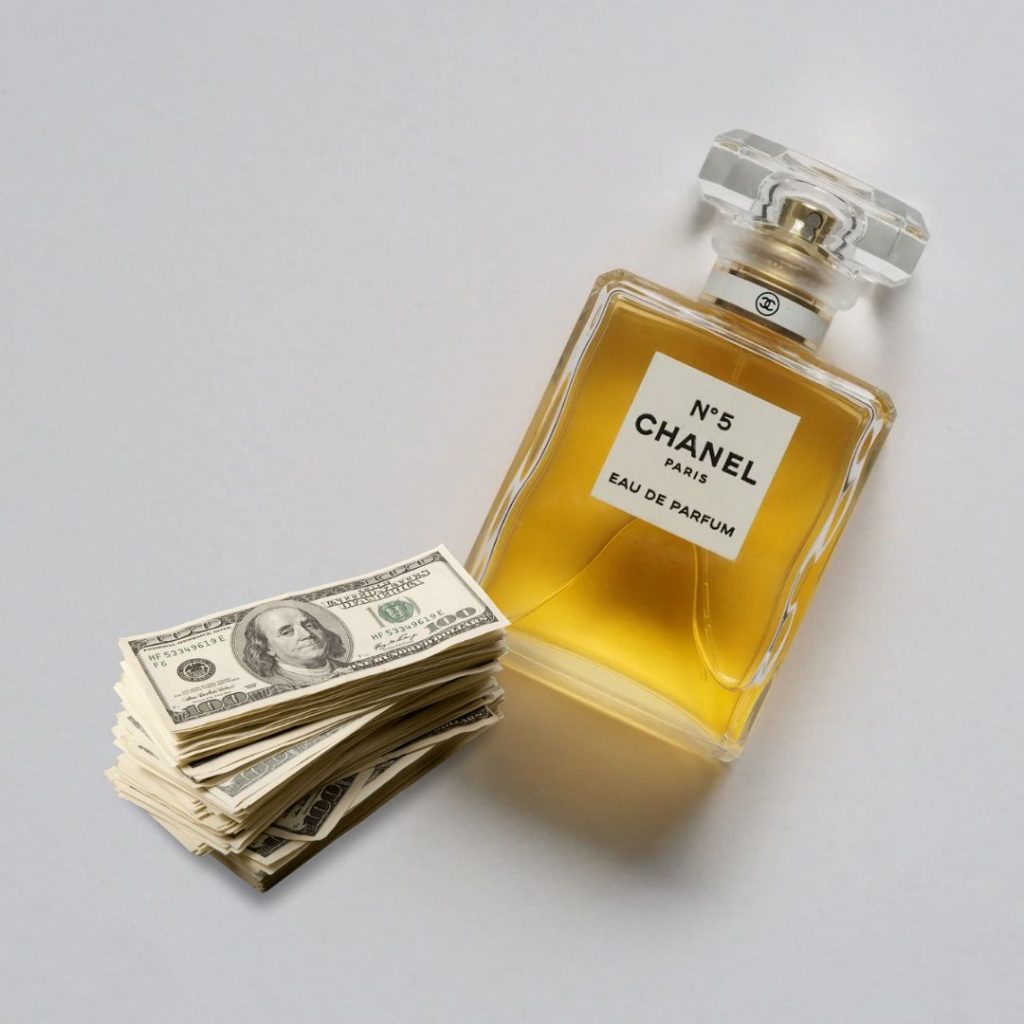
Does Luxury have a minimum price?
Esseen tyyppi: Yksilöessee / 2 esseepistettä.
Definition of luxury
Luxury can be defined as pleasure that one can have rarely, something desirable with preferably high price attached to it. Only few can obtain it. These were definitions my Luxury Brand Management teacher Benabdeslem gave us in the class while studying the topic in Paris. The world Luxury can be found earliest in the 17th century and its English translation originates to French luxurie and Latin luxus, which refers to excess. (Benabdeslem, 2022)
Jean-Noël Kapferer, Cindy Klippert and Lara Leproux conducted an exploratory study to understand the psychology of luxury price and to find out, if there is a so-called minimum price to luxury. As luxury is relative to culture and changes, in the study Kapferer and other define Luxury through 6 points:
- Product or experience with high quality
- Price exceeding its functional values
- Strong connection to heritage, culture, and know-how
- Distribution is restricted and controlled
- Service is highly personalised
- Gives a sense of privilege as it helps build social hierarchy
The weight of these points is relative to culture and change as well, but they should be found in all described as luxury. (Kapferer, 2013)
Through a subjective point of view, luxury can be defined as rare objectives or experiences, that can be seen as something beyond the everyday things needed. As luxury is relative to culture and changes, this definition seems to be very problematic, as some may perceive brands like Ralph Lauren as luxury as some don’t see it being rare enough. The luxury stores want to highlight the craftsmanship, exceptional quality, heritage, and noble ingredients along with rarity. According to the article the big masses who do not consume luxury describe it as waste and excess. (Kapferer, 2013)
Luxury for oneself vs luxury for others
In historical sense luxury has been associated with royals and their lifestyle. In modern times luxury is more associated with craftsmanship, uniqueness, rarity, exceptional quality as well as art and as of today most of the people buying luxury are not ‘rich’, but rather part of the middle-class buying dreams. (Kapferer, 2013)
It’s important define the difference between luxury for oneself and luxury for others. When one buys luxury for oneself, they enjoy the feeling they get for knowing they own luxury and there is no feeling or need to show it off to others. Usually, people with this category prefer small logos on the items they buy as they do not want to be flashy. People that buy luxury for the sake of others, want others to see they can afford it and thus prefer big logos that anyone can spot. This kind of luxury shopper enjoy the status the purchase gives them.
Price of luxury
The price of luxury can’t be explained with reason and rational thinking, as it is closely tied to intangible things such as history, legends, and the heritage the brand carries. Purchase of luxury doesn’t happen frequently, and the information of the price is usually hidden. To know what a Chanel handbag costs; one must ask to know as expensive price is part of something being luxury.
The study defines that people who they call snobs are more willing to purchase items that have higher price, thus resulting in less people having it. This demonstrates the increased desirability a higher price creates. As a high price indicates bigger likelihood of something to be luxury, the price is the sole indicator of luxury for people just entering the luxury market. As a common rule for luxury brands, they do not discount their products, as this can be seen decreasing the luxury status of a brand. In the study they asked, if Dior would reduce their product prices with 50% without any decrease on the quality or service on these products, would people consider it still as luxury? The answer differed with 45% saying it would still be luxury and 55% saying it would no longer be considered as luxury. (Kapferer, 2013)
Dior brand is strong and for decades it has defined what luxury is and people in the study used this as a reasoning for the price deduction not changing the luxury status, as they saw the price as irrelevant to the luxury status of Dior. Other reasonings included the fact that the quality of the product or service did not drop with the price and even with 50% price reduction, the items would still be expensive and beyond the financial resources of most. One thing this group noted was that, if the price drop would become a frequent event, it would make the brand look weak. (Kapferer, 2013)

People in the 55% seeing Dior no longer as luxury if they had 50% price drop in their items declared it as a sign of disloyalty towards their existing customers and a means to attract totally different customer base. As luxury should be timeless, unlike fashion, its price should follow this thought too. In the eyes of these consumers, the price drop breaks the idea that luxury is not for everyone. (Kapferer, 2013)
I found this division very interesting; I must agree that if I’d see -50% off sales signs on the door of Dior stores, I’d also consider the brand dying and not luxury anymore. However, if some of the product prices would be discreetly dropped by 50%, I most likely would not notice it, as I would still not be able to afford them, as a Mini Lady Dior bag embroider with strass and white round beads in a square pattern would still cost 3 400€s. The argument of luxury status and price of Dior having nothing in common, I must disagree with, even though I do see the heritage and history being at the core of Dior’s Luxury status, I don’t believe we would call it luxury if Mini Lady Dior bag would cost 100€s. Thus, I see the argument of price not having anything to do with luxury status of the brand ridiculous.
Can a counterfeit be seen as luxury?
When the interviewers asked if a very well made, quality counterfeit could be considered as luxury 6% answered yes and 94% answered no. People saying it could be considered as luxury base this on the possibility of others not noticing it to be a fake, thus it would be perceived as luxury by others. The majority stating no based it quickly on denying the expected quality as the ingredients would not be as noble affecting the design. To the majority a copy could not replace the feeling of pleasure when one owns an authentic luxury product, no matter the quality of the copy. Some referred to things like the lack of connection with heritage, history and savoir fair of the original luxury brand and how even the purchase of the item will be far from a luxury experience. It was seen that buying a counterfeit does not allow you to access the symbolic club of people capable of affording luxury. (Kapferer, 2013)
To me it was shocking that anyone would consider a counterfeit equal to luxury as first of all it’s a crime to take another brands’ intellectual property and sell it as your own. The number of criminal activities related to counterfeit production and sales are huge and someone supporting that and thinking they are entering the world of luxury, makes me think these people must be insane. I 100% agree with the people who answered no and reasoned it with the lack of connection to the heritage of the luxury brand and their incredible savoir fair, as by definition of luxury, you need to have heritage, culture, and exceptional quality to be considered as luxury. How I see it, is that the people answering yes, are either people who would never buy luxury items in any shape or form or have such strong mind for buying luxury for others, that they do not care about not getting the satisfaction of buying the real thing, because for them the pleasure comes 100% from the status others give for their purchase. However, the latter way of thinking is not very sustainable as once the counterfeit will be discovered, any status possibly given, will come crashing down.
Conclusion on minimum price
When Tiffany’s launched a silver line accessible to new young buyer with 110 dollars, the feeling of exclusivity was damaged in the process. In the study they asked what the typical price of Mauboussin ring is and if it’s luxury or not. The average price given was 1213€s and it varied between 150€ and 7000€s. In this part of the study, they found no direct link between the price given by the interviewee and the answer of whether they considered it luxury. People saying Mauboussin was not luxury, even saying a price of a thousand euros, they compered the brand with profound luxury jeweller such as Tiffany’s or Cartier. Others said even 300€s ring to be luxury and for those who didn’t know the brand, the price was the only factor of luxury. In these cases, 3000€s seemed to be a limit that there was no way of saying, it wasn’t luxury. (Kapferer, 2013)
It’s important to note how difficult it is to establish a minimum price, as it depends so much on the person and their perception of what is expensive or what even defines luxury. As it can be seen in the study, the type of product also plays a huge role on if price influences the luxuriousness of a product or how big the price needs to be for luxury status. To me this question is kind of chicken-egg kind of a question, as it’s so difficult to crack. More interesting to me in this study was the different reasoning people gave for luxury or non-luxury as they answered the questions. How some appreciate the craftsmanship and quality above all else and on the other hand others will focus on the history and heritage of the brand while some are solely focused on the price they pay and status they get with it. As I can’t even establish a minimum price for luxury for my own standards, I’m still sure there would be a point when I would no longer consider something as luxury.
Written by: Emilia Parikka
SOURCES:
Benabdeslem, F. 2022, Luxury Brand Management, Course, Taken in Autumn 2022.
Kapferer, J. and others. 2013, Does luxury have a minimum price? Exploratory study into consumers’ psychology of luxury prices, Received: 13.10.2013, Uploaded: 28.5.2016, Read: 10.11.2022, https://www.researchgate.net/publication/263327510_Does_luxury_have_a_minimum_price_An_exploratory_study_into_consumers’_psychology_of_luxury_prices
Dior, 2022, Website, Mini Lady Dior Bag, Read: 5.1.2023, https://www.dior.com/en_fi/fashion/products/M0505OERA_M19A-mini-lady-dior-bag-square-pattern-embroidery-set-with-strass-and-white-round-beads



